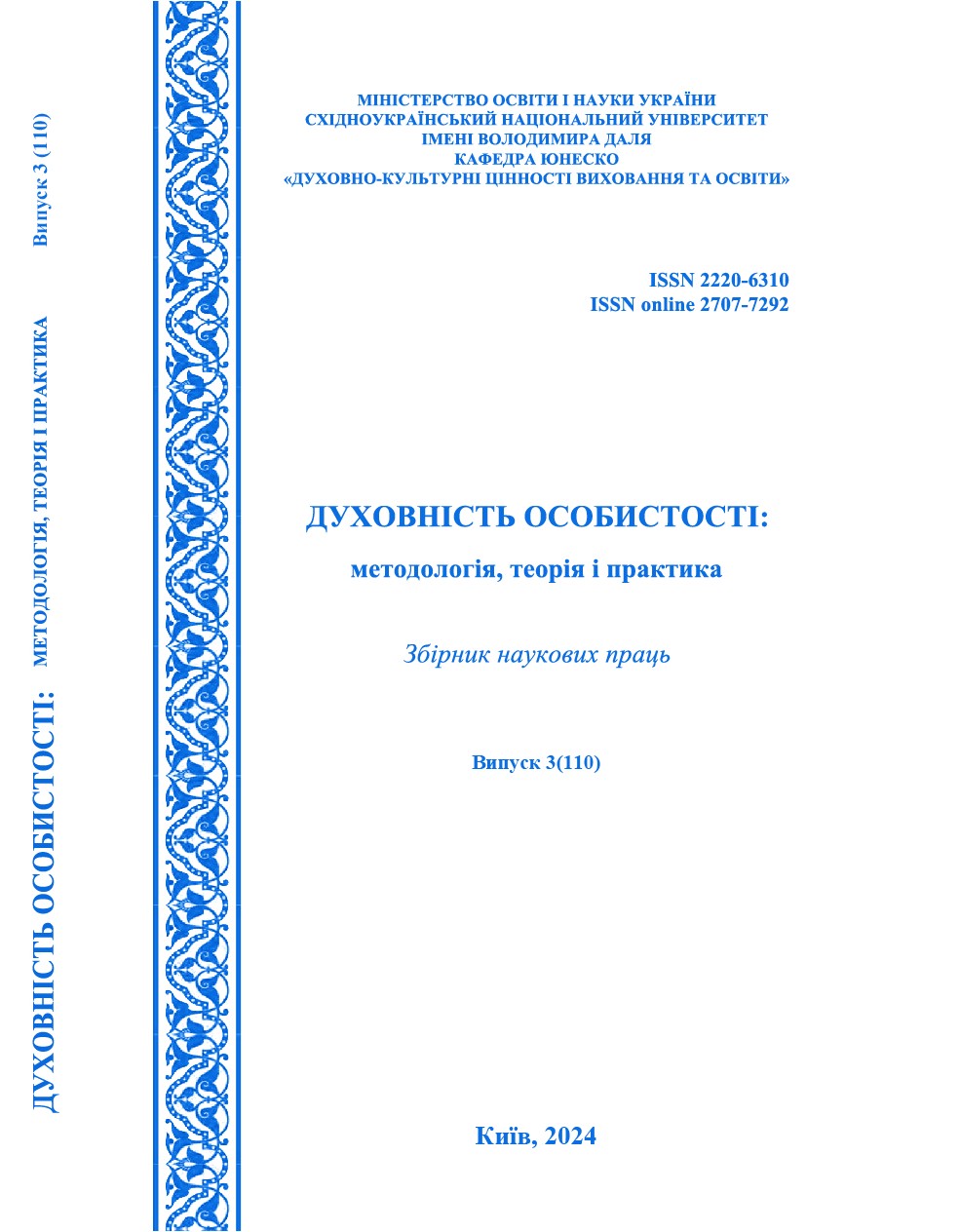Development of spiritual and moral self-awareness of teaching staff of general secondary education institutions
DOI:
https://doi.org/10.33216/2220-6310/2024-110-3-35-44Keywords:
spiritual and moral maturity, spiritual and moral values, spiritual and moral education, moral consciousness, spiritual cultureAbstract
Within the framework of the scientific article, the main components of spiritual and moral maturity in the general concept of spiritual and moral education of the individual are defined and substantiated. The main components of the formation of the spiritual and moral consciousness of the personality of pedagogical workers, their personal culture and real life activities are formulated, which corresponds to innovative educational trends caused by Ukraine’s entry into the world educational space. It is highlighted and researched the conscious reorientation of modern professional and pedagogical education to European standards involves, first of all, the training of a competent specialist who is able to "practically act, apply individual techniques and experience of successful actions in situations of professional activity and social practice."
Among the key competencies that a future teacher must master, spiritual and moral has priority. It acts as an indicator and at the same time the result of the teacher's professional and personal readiness to work in an educational institution, because the implementation of any pedagogical task has a moral content. The spiritual and moral competence of a teacher represents the main regulations of his actions, which are fixed in
the habits, traditions, principles of life and professional activity, mental states, actions, deeds and qualities of the teacher, ensures his choice of conscious ethical behavior in accordance with professional and pedagogical norms. Spiritual and moral competence, by the specifics of implementation, belongs to the so-called supra-subject competencies. They have an integrated nature and combine a certain complex of knowledge, skills and attitudes that are acquired by future teachers during the assimilation of the entire content of pedagogical education.
Pedagogical morality is a system of meaningful, normative judgments that express certain requirements for a teacher's behavior, his willingness and ability to live by
spiritual and moral norms.

